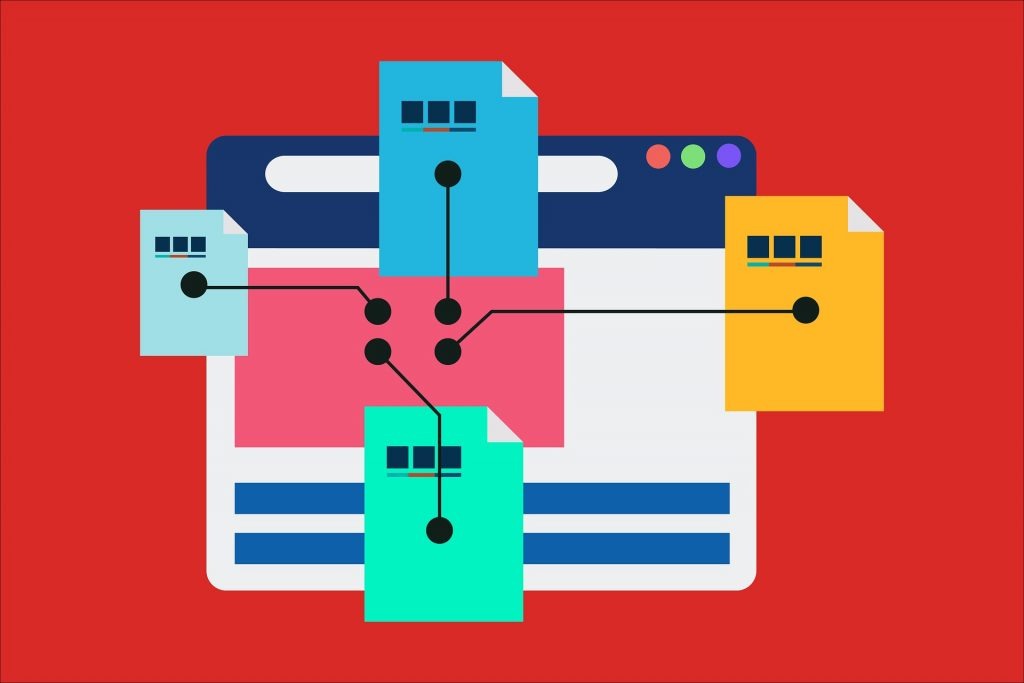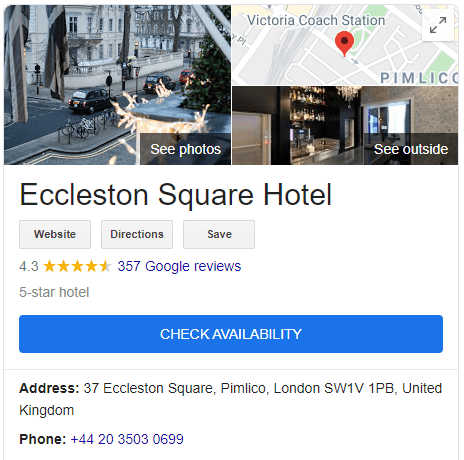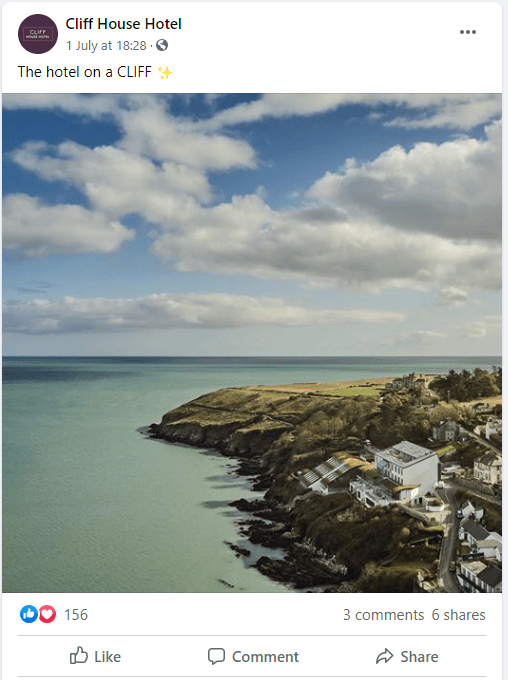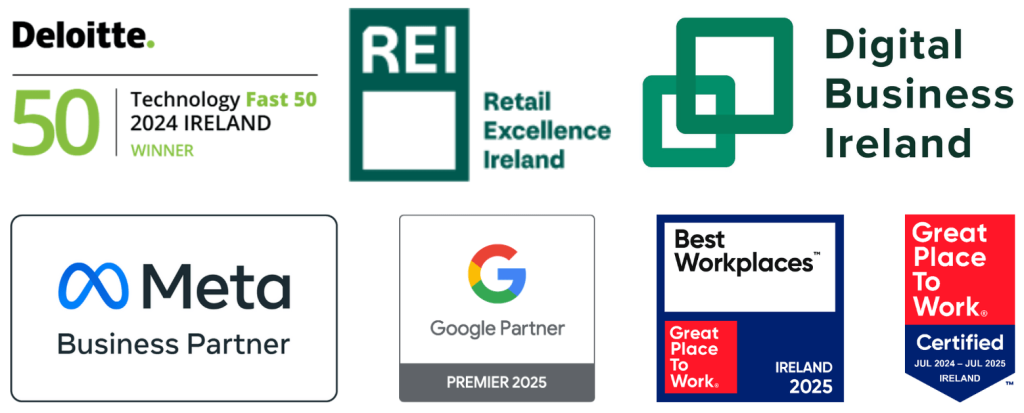Digital Marketing Guides
Our Guides
Core Optimisation are one of Ireland’s Leading Google Premier Partner Agencies. We are specialists in PPC, SEO, Paid Social. Conversion Rate Optimisation and more, ensuring that our clients are always ahead of the curve when it comes to their digital efforts. We are now sharing our top tips guides for a number of industries which you can find below.
When it comes to digital marketing as a whole, each industry needs to be constantly evolving and learning from what works, what doesn’t work and what could work. The hotel industry is no different – which is why your hotel digital marketing strategy needs to be on-point in terms of the type of hotel property you have, your hotels USPs (unique-selling-points) and the local area and amenities on or near your hotel’s doorstep.
In this digital marketing guide for hotels, we are going to cover useful ideas on how to better improve your website, its SEO (search engine optimisation), some PPC (pay-per-click) ideas, as well as what’s working for hotels on social media.
1. Your Hotel Website
As with any business website, it is of utmost importance that you update and maintain your hotel website to provide your customers and potential customers with a top-class experience. And I’m not talking about a flashy website that has crazy “cool” features – I’m talking about a website that serves its users first and puts its users at the forefront of its design, content and layout. Having a great website is a critical element of your hotel’s online marketing strategy.
What are some hotel website tips?
Having a fast-loading website is obviously going to make you more friends than enemies and you certainly don’t want to make enemies of people who are trying to book to stay at your hotel or trying to navigate your hotel website.

- Use a CDN (content delivery network)
- A CDN such as CloudFlare helps improve page load speeds on your hotel website by serving your content closer to where the user is searching from.
- A CDN such as CloudFlare helps improve page load speeds on your hotel website by serving your content closer to where the user is searching from.
So, if you have website traffic and people looking to book to stay in your UK hotel from the US, then using a CDN will help get them to the goalline quicker and with less fuss.
- Compress large image files
- When it comes to a hotel website, images are a great way to show off and display the many features customers will experience during their stay. That being said, having too many large images on a page can impact how fast a page loads and affect the user-experience of said page.
- When it comes to a hotel website, images are a great way to show off and display the many features customers will experience during their stay. That being said, having too many large images on a page can impact how fast a page loads and affect the user-experience of said page.
Using an image compression tool such as Optimizilla will help you decrease your image file sizes without compromising on the quality of the image.
- Lazy load images
- Lazy loading images basically means to not load all of the images at once and to load them as a user scrolls down a page. This will help the webpage load faster for users.
- If your website runs on WordPress there are lazy load plugins that can be used. Alternatively, there is a lazy loading image markup that can help with this.
Improve your hotel website navigation
When it comes to hotel website navigation, it is important to showcase the most important pages on your website. So, if your particular hotel has a great emphasis on its spa facilities, then it is probably best to include it in your sites main navigation, as well as any supplementary pages related to it.
- Clear & Simple Website Navigation
Having your website navigation in a clear and concise format will help people find what they are looking for with minimal effort – which comes back to user-experience. Making sure that pages are easily accessible will help people stay on the site longer, and therefore, more likely to convert. KEEP IT SIMPLE and you won’t go too far wrong.

- Logical & Relevant URL Structure
URL structure is also a critical component of navigation from an SEO point of view as it tells search engines what pages are related.
For example, if you have a hotel spa that provides different spa treatments, your URL structure should look something like this:
yourhotelwebsite.com/spa/spa-treatments/
Hotel CRO – Conversion Rate Optimisation Tips
It is all well and good having a fast-loading and easy-to-navigate website – that’s a given. But what if when people are navigating through your fast-loading website but there are conversion barriers in the way, stopping them from making a hotel booking or getting in touch about an offering that the hotel currently has.
Here are some CRO tips that you can use for your hotel website:
- Add Crazy Egg heat map to your hotel website
- Crazy Egg allows you to record people using your website and check to see if they have any issues using and navigating the website or booking a room.
- Clear calls-to-action
- It is important to make sure that no matter where a person is on your website, that there is a relevant option to convert – whether that be book a room on a room page, download a wedding brochure on a wedding page or to enquire via the contact form.
- It is important to make sure that no matter where a person is on your website, that there is a relevant option to convert – whether that be book a room on a room page, download a wedding brochure on a wedding page or to enquire via the contact form.
- Set up conversion tracking on your hotel website
- Firstly, it is very important to define the goals for your hotel and to track what matters i.e. Ecommerce bookings, spa brochure downloads, contact enquiries etc.
- We recommend tracking several different elements such as:
- Booking engine sales
- Voucher purchases
- Phone link clicks
- PDF downloads
- Email link clicks
Once you know what goals are important to your hotel, you can begin to accurately track and view their performance.
Hotel SEO (Search Engine Optimisation)
When it comes to search engine optimisation for hotel websites, there is always quite a lot of generic SEO advice that will help but may not help you stand out from your competitors.
What are some helpful hotel SEO tips?
- Local SEO for hotels
When your customers are searching on Google for hotels in and around your location, they usually search in a very similar way. For example;
- Hotels in London
- Hotels in Dublin
- Hotels near London
- Hotels near London

When optimising your website and your content, it is wise to optimise around these more generic terms as you still want to be in with a chance of ranking for them.
That being said, these search terms are still quite generic and very competitive so will bring about most hotels as well as the likes of OTAs (online travel agencies). So, in order to stand out from the crowd and to take advantage of what makes your hotel property unique, you might also target other, more specific/niche search terms. For example;
- Boutique hotels in London
- Spa hotels in London
- Hotels near Guinness Storehouse Dublin
- Hotels Dublin 1
When people are searching for more specific locations (where your hotel is located), then you definitely need to have all bases covered in terms of local content and local keyword targeting. So, that means, creating content around local landmarks, visitor centres, local events, concerts, the list goes on. By providing people with this type of information, you are getting “piggy-back” traffic off the event or landmark that they are searching for.
- Consistent hotel NAP (name, address, phone number) information
It is important to make sure that the NAP information about your hotel is consistent and correct across all your different online platforms such as your website, Google my business, as well as any other platform such as social media or business directories.
A lot of times, there may be quite a few inconsistencies which may lead to your people getting the wrong information about your hotel. If you happen to have all of the logins for the various platforms that your hotel is affiliated with, then you can manually change any inconsistencies that have occurred.
If you are like a lot of other hotels, then some of the logins for said directories or even social media accounts may have been lost or were created by an ex-employee. Luckily, there are some effective NAP tools that can help with this.
NAP & Citation Tools:
- Optimise your hotels Google My Business Listing
A critical element that often gets forgotten about a hotel’s local SEO strategy, but a very important one is Google My Business. There have been quite a few changes to Google My Business in the past few years which, from what I can see, have gone unnoticed for a lot of hotels. This, quite often, can be an afterthought.

With that in mind, here are some areas of opportunity when it comes to optimising your hotels Google My Business listing:
- Add the most accurate business info i.e. NAP, opening (and special opening) hours
- Add accurate business category info. Does your hotel have a spa, restaurant, swimming pool or gym? ADD IT ALL IN!
- Add nice images or even a virtual tour
- Add a PDF of your hotel’s food menu
- Politely reply to reviews – especially bad reviews!
- Pre-populate questions and answers to frequently asked questions
- Keep checking in and updating your GMB listing as things change
Here is a cool Google My Business Optimisation checklist to set you on your way!
These SEO tips might seem quite obvious but they are things that we see done incorrectly (or not as good as they should be.) But, it is these basic changes that will go a long way in driving relevant conversion-ready traffic.
Social Media for Hotels
Social media can be a great tool in your digital marketing armour for reaching and engaging with your target audience. Knowing what content works well on social media for hotels (especially your hotel) can help you further boost relationships, brand awareness, as well as conversions. Here, we outline some ways to help you on your way to social media success.

- What social media platforms work best for hotels?
- YouTube
Each of these social media platforms can and will serve a different purpose within your overall social media marketing strategy. For example, LinkedIn is a far superior platform for targeting a more corporate audience. Whereas, Pinterest would be a better platform for visually promoting events such as weddings or galas. Knowing what content to serve on each different platform is key to driving better, more targeted engagement.
- Fully optimise each social media platform
Making sure each of the social media platforms you use for your hotel is fully optimised and contains all of the correct information about your hotel will go a long way towards serving your followers. As mentioned previously, having clear and consistent business information is an important factor in local SEO so this does come in to play here again.

Let’s use Facebook as an example. Below, we have listed some vital elements that need to be added/optimised on your hotels Facebook page.
- Branded profile & cover photos
- Accurate NAP (name, address, phone) info
- Facebook custom username
- Business categories
- Website URL
- Contact email
- About your hotel
- Hotel opening hours
- Call-to-action button
Another element worth mentioning is how responsive you are to Facebook Messenger messages. Make sure you don’t leave it too long before responding to enquiries from your followers.
- Promote relevant & tailored content
The most important social media factor for any business is content. Knowing what type of content resonates with your followers is key to driving engagement with your hotel brand. Also, you want to promote content that fits in line with what your hotel has to offer.
For example, if your hotel positions itself as a boutique wedding venue, then you must promote it on social media as so. You need to put yourself in the shoes of your followers and think, what would they like to see?

How you use images and hashtags is also very important. Make sure to use nice, high-res images with relevant hashtags.
PPC (pay-per-click) Advertising for Hotels
PPC or pay-per-click advertising is a great way to further enhance your hotel’s digital marketing strategy. There are many benefits of using PPC advertising to promote your hotel such as:
- Control over your advertising budget
- Ability to measure, track & improve performance
- Only pay when someone clicks your ad
- Control where you send users i.e. to a specific offers page
- Compliments other digital marketing activities such as SEO, social media etc.
With that in mind, let’s look at some ways in which hotels can win using Pay-Per-Click advertising.
- Bid on your hotel brand name
This might seem like an obvious one, but it is definitely still worth mentioning. Too often, your competitors and OTAs are trying to steal your traffic, as well as your conversion. Protecting your brand traffic on PPC not only makes sense from a competitive standpoint but again, it does allow you to have more control over what your customers and potential customers see, as well as where they land on your website.
Doing so gives you control over what ad messaging they see – so it could be a great opportunity to showcase some offers. You also have control over where they land on your website, so again, an opportunity to send them to a specific landing page has arisen.
- Choose your PPC keywords carefully
Choosing the right keywords can make or break a hotel’s PPC campaign. Similar to your hotel’s SEO strategy, you need to choose keywords to target that are more likely to convert. This is, again, where you need to evaluate the key selling points of your hotel property.
So, rather than targeting generic PPC keywords such as ‘hotels New York’ or ‘hotel wedding venue New York’, you may want to try targeting keywords more specifically to your property.
For example:
- 5-star hotels New York
- 5-star hotels Manhattan
- Luxury hotel wedding venue New York
- Small hotel wedding venue New York

Being more specific when choosing PPC keywords to target (compared to more generic keywords) will generally be more cost-effective, have less competition and be more likely to convert as the searches will be more relevant to your hotel’s offering.
- PPC Landing Page Conversion Rate Optimisation
A PPC landing page is, more often than not, the last piece of the PPC puzzle and, more often than not, it is an element that gets left to the wayside. Okay, so you have created amazingly good PPC ad copy and chosen the right types of PPC keywords that you know are going to drive clicks through to your website – so what next?
The next steps are to optimise your PPC landing page so that it:
- Has a clear path to conversion
- Is the landing page set up to achieve PPC goals?
- Are all links working on the page?
- Does the landing page have any distractions?
- Contains content specific to the PPC ad that was clicked
- Does the landing page serve the right purpose?
- Are the keywords being targeted included within the landing page content (improved ad quality score)?
- Does the offer/promotion align with the landing page content?
- Has clear CTA (call-to-action)
- Does your hotel landing page CTA align with your PPC ad goal?
- Is your CTA clear on the page?
- Would it be worth A/B testing different CTAs?
Remember, when creating a PPC campaign for your hotel, the 3 most important things to consider are – your keywords, your ad copy and your landing page. This might sound like old information but it is the basics that you need to perform right in order to achieve PPC success. Otherwise, your ROI (return-on-investment) won’t be as high as it could be.
Digital Marketing for Hotels Conclusion
So there you have it, some really solid insight into how you can utilise various aspects of digital marketing for your hotel. Depending on your hotel property, it might not be feasible to include each element of digital marketing. That’s why you need to figure out what channels could be best to take advantage of – both in the short and long-term.
If you are not quite sure how to get the most out of your hotel’s digital marketing opportunities, then feel free to contact us here at Core Optimisation. We have worked with a vast number of hotels ranging from smaller boutique hotels to large 5-Star hotels.
When it comes to digital marketing as a whole, each industry needs to be constantly evolving and learning from what works, what doesn’t work and what could work. The hotel industry is no different – which is why your hotel digital marketing strategy needs to be on-point in terms of the type of hotel property you have, your hotels USPs (unique-selling-points) and the local area and amenities on or near your hotel’s doorstep.
In this digital marketing guide for hotels, we are going to cover useful ideas on how to better improve your website, its SEO (search engine optimisation), some PPC (pay-per-click) ideas, as well as what’s working for hotels on social media.


